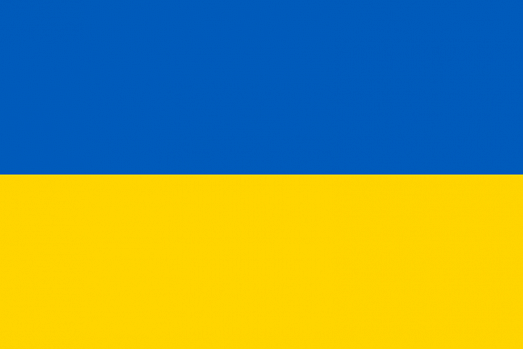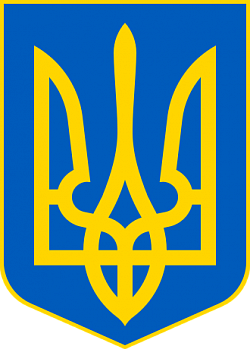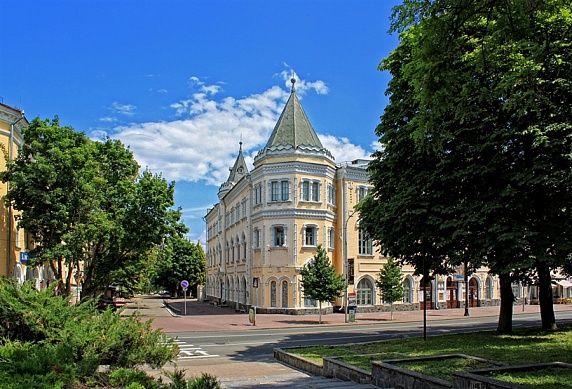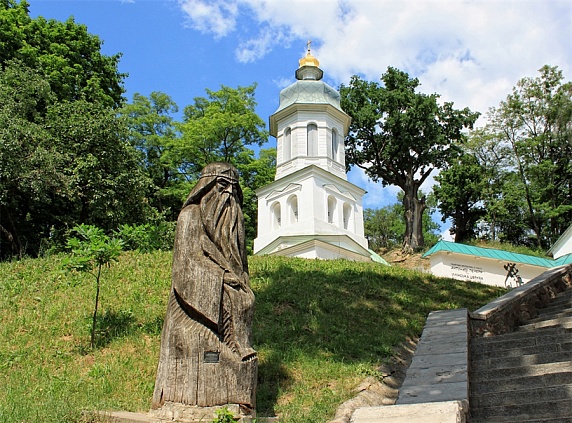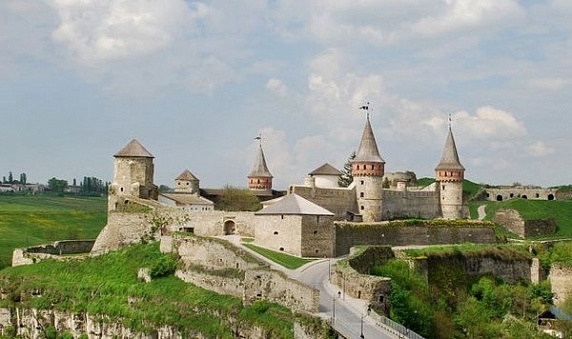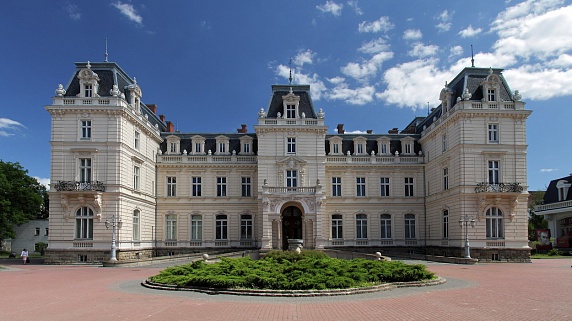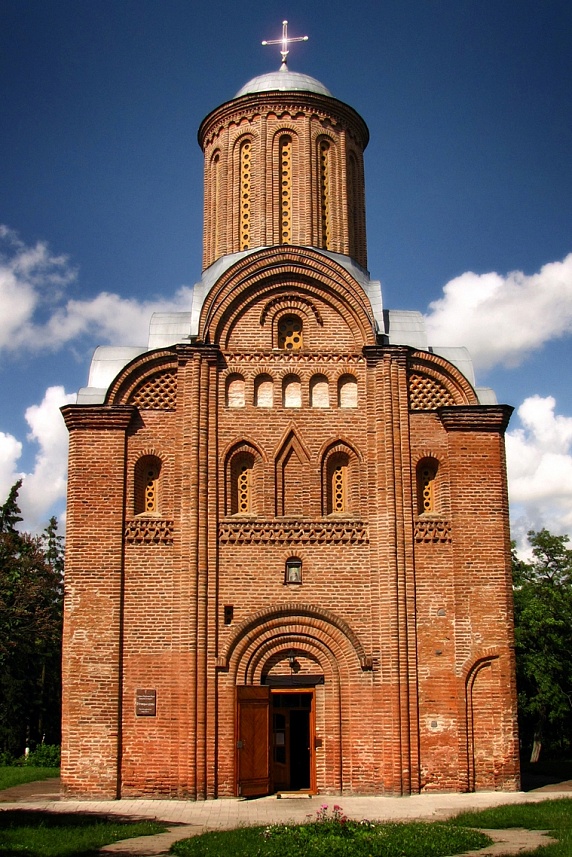 Ukraine
Ukraine
Permanent Representative to the UN Vitaly Churkin’s statement and remarks at a UN Security Council meeting on Ukraine, New York, January 26, 2015
Mr Chairman,
Russia is gravely concerned about the escalation in Ukraine. For days at a time, cities and towns in Southeast Ukraine become the targets of indiscriminate shelling from heavy weaponry, in which hundreds of civilians have died. We firmly condemn this treatment of civilians and express our sympathy to all the victims, irrespective of the city or town in which the tragedy happened.
The Ukrainian armed forces have been shelling Donetsk, the largest city in Donbass, almost incessantly since early January. In the past week alone, at least 27 civilians have been killed and 71 wounded, and 105 residential blocks, three hospitals, two preschools and three schools have been damaged. In all, 2,367 residential blocks have been damaged in the city.
The city of Gorlovka has been the target of violent shelling, but this has not been reported by the Western media or discussed by our colleagues in the Security Council or the Ukrainian representative. The past week was the most difficult in Gorlovka since the summer: 107 people have been killed, including nine children, and 317 have been wounded. Hospitals, over 15 schools and a dozen preschools have been damaged.
Ten civilians were killed in an artillery raid by the Uragan multiple launch rocket systems against the town of Stakhanov on January 21. This is not a complete list of cities and towns controlled by the self-defence forces where civilians die every day.
However, the media is only focused on two events: the Volnovakha bus attack and the shelling of a residential neighbourhood in Mariupol. The reason is that both cities are controlled by the Kiev armed forces. But when a transit shelter was shelled in Donetsk, no commemoration marches were held in Kiev and no emergency meetings of the Security Council were called. The tragedy did not even merit a separate statement by the UN Secretary-General. Are the residents of cities controlled by the self-proclaimed Donetsk and Lugansk people's republics second-class citizens?
It must be said that Kiev again used these recent tragedies to whip up hysteria. The blame is placed on the self-defence forces immediately, as if the accusations were formulated in advance. Kiev immediately calls on the West to provide financial and military assistance and to put pressure on Russia. But once the propaganda potential is exhausted, they immediately lose interest in the tragedy and its investigation. Moreover, the information that comes to light soon afterwards sometimes differs completely from the unconfirmed reports made public immediately after said incident. This is why we are urging a careful and objective investigation of the January tragedies in Volnovakha, Donetsk and Mariupol and those that happened before that, including on Maidan, in Odessa and Mariupol.
Mr Chairman,
Last Saturday, the council members failed to coordinate a press release on the tragedy in Mariupol. We believed that a statement was due, just as in the cases of Volnovakha and Donetsk, and were prepared to vote for a similar text. Why didn't it happen this time? The answer is clear: the delegations of the United States, the UK and Lithuania demanded that the release condemn a statement by the leader of the self-proclaimed Donetsk People's Republic taken out of context of the recent developments and the Ukrainian crisis as a whole. This issue has also been discussed at length at today's meeting. But what is the whole picture?
First, the leaders of the self-defence forces made different statements the day before yesterday. They cannot be quoted selectively or out of context.
Second, our Western colleagues have never condemned the leaders of Ukraine, who have no scruples about what they say or do. They threaten to bash Donbass and to use force to retake and Ukrainise it, and say that the people should prepare for "a big continental war," saying that there is no alternative.
About a week ago, none other than Ukrainian President Petr Poroshenko announced the resumption of hostilities. He did this several days after the meeting of the foreign ministers of Germany, Russia, Ukraine and France in Berlin, where they supported the idea of an immediate withdrawal of heavy weaponry from the line of contact sealed in the Minsk Memorandum of September 19, 2014.
I'd like to remind my colleagues that the Security Council documents prepared by Russia on very important issues, such as putting an end to the bloodshed and the humanitarian situation in Donbass, have been blocked. One of such documents was a press release in support of the Minsk agreements, which we submitted immediately after they were made public on September 22 and which Lithuania and the United States blocked. After the shelling of a transit shelter in Donetsk, which was obviously conducted by the Ukrainian army, we spent a day arguing against the unconstructive amendments proposed by some delegations. It was only because we did not give up that the text was coordinated by the end of the day. I'd like to say that after what happened in Volnovakha we accepted the text as proposed by its authors within a matter of minutes.
It is regrettable that throughout the conflict our Western colleagues have been condemning the self-defence forces for all possible and impossible crimes, at the same time sheltering the Kiev government. Not a single honest attempt has been made to constructively discuss the causes of the internal Ukrainian crisis and to find a solution.
The aggravation of the situation in Donbass was the result of Kiev's consistent evasion of direct dialogue with Donetsk and Lugansk on how to implement the Minsk agreements in practice. During the entire period since last September, we have seen the Ukrainian leadership strengthen the military positions in the southeast. Troops and equipment, including heavy weapons, have been assembled at the line of contact, ever new waves of mobilisation have been announced, and new defence orders have been placed with arms factories. In parallel, instead of implementing economic recovery measures in Donbass, Kiev has resorted to an economic strangulation policy with regard to areas of Donbass beyond its control. At first, people were deprived of incomes when Ukraine stopped paying their pensions and social benefits, after which a transport and humanitarian blockade was imposed.
Kiev was preparing for war all along, and it didn't even conceal this.
Mr Chairman,
History brooks no subjunctive mood, but developments could have taken a different course, if the Minsk Memorandum on a ceasefire and disengagement of heavy weapons, including the handover of the Donetsk airport to the self-defence forces, as stipulated by the Memorandum, had been implemented on time. A new spiral of confrontation would have been avoided had the Ukrainian authorities accepted President Putin's January 15 proposal on an urgent pullback of heavy weapons.
It is primarily the party of war in Kiev that clearly doesn't want peace in Donbass. Official Kiev has been stonewalling yet another meeting of the Contact Group in Minsk, making it conditional, for no good reason, on the self-defence forces ensuring a high level of representation. The crucial thing today is to hold this meeting without bickering over the level of representation. We are trying, as far as we can, to facilitate certain contacts scheduled for the near future. We will continue to encourage the sides to hold direct dialogue, as we did throughout the internal Ukrainian crisis.
In this connection, we urge the representatives of states that have influence on the Ukrainian leadership, and particularly Washington, to stop giving every encouragement to the Ukrainian hawks, covering up their inhuman atrocities, and egging them on to seek a military solution to the conflict. The only thing this can lead to is an even greater disaster and yet another seat of tensions in Europe.
All responsible members of the international community must try to get Kiev to pass from words to actions in order to launch a full-scale process of political settlement. As long as the Kiev party of war fails to understand that it is impossible to settle the conflict by force and that multiple rocket launchers, tactical missiles, phosphorus bombs, dispenser weapons, and new mobilisations will be of no help in this regard, this kind of relapses will happen again and again. The Kiev regime must be urgently made to sit down to a negotiating table with the self-defence forces.
It is essential for everyone to understand that real results can only be achieved through Kiev's direct dialogue with Donetsk and Lugansk, a dialogue that the Ukrainian authorities have been evading in every way as they clearly have set course for violent suppression of the southeast. There will be no national reconciliation in Ukraine or stable settlement in its southeast unless an inclusive and direct political dialogue is held to discuss parameters of a constitutional reform, as stipulated by the Geneva Statement and the Minsk agreements.
Thank you.
Thank you, Mr Chairman,
I would like to make a few substantive remarks, but by way of introduction I would like to revisit what happened in Mariupol and the fact that the Security Council was unable to comment on this tragedy. Some of our colleagues spoke about that but our Ukrainian colleague went too far, even by his own standards, totally distorting the essence of the Russian position.
First, we always condemn all attacks against civilians and we grieve over all civilian victims, unlike Kiev, where they meticulously specify exactly what victims and in what regions they mourn or grieve over whenever mourning is declared. In other words, they absolutely do not care about the people who are killed by the hundred by Ukrainian shells and rockets. It is impossible to understand whether they still regard Donbass as part of Ukrainian territory. If not, just say so. This will make things much easier. I repeat, we always condemn situations where innocent people die and we were prepared to do so in the case of Mariupol. That this has not been done is the result of unscrupulous diplomacy by some of our colleagues. This is a method to which they have resorted more than just once in the course of the Ukrainian crisis, when wording that is totally unacceptable to one Security Council member is used. Have you ever condemned the misanthropic remarks that are coming from Kiev? Not once. Then why did you become fixated on some remark from a self-defence force commander and why were we supposed to condemn it outright? If you had not become fixated on that remark, acting in a clearly unscrupulous manner, then the condemnation of what had happened in Mariupol would have been issued within minutes, as was the case with the statement proposed by the Lithuanian delegation on Volnovakha, which we immediately accepted.
Second, we always stand for a thorough and objective investigation of such cases. I don't want to discuss the work of OSCE observers at the Security Council but in this case we believe that the OSCE observers did not act as they should have. A group led by a US member of the monitoring mission arrived, hastily examined the scene of the tragedy and immediately issued a public statement. This is at odds with the methods of work that are generally accepted and traditional to the OSCE. So this is yet another case where tragic events are being clearly used for unscrupulous political purposes.
Now over to a more substantive part of our discussion.
Unfortunately, our present meeting is reminiscent of many previous ones. Perhaps with a slight shift of focus. Today, some of our colleagues have devoted considerable attention to certain remarks by the leaders of the self-proclaimed Donetsk People's Republic. Just to remind you, Donbass has for several months been under Ukrainian rocket and artillery attacks so one can hardly expect pacifying remarks from the leaders of the self-defence forces. As a matter of fact, over several months the self-defence forces have been trying push back Ukrainian army artillery and rocket systems to a distance where they would be unable to threaten Donetsk and Lugansk. This is the goal of the Minsk documents. This is why it is important to carry them out.
Various figures have been cited today, but it is important to go to the root of the problem. It is essential to understand the meaning of the thesis that the conflict cannot be resolved by military means with regard to eastern Ukraine. We said this in so many words at the Security Council in the early stages of the conflict: Ukrainian tanks cannot enter Donbass. Unfortunately, this was precisely the goal set by Poroshenko's well-known "peace plan", effectively demanding that the insurgents capitulate. It was a direct path to escalation, to catastrophe. Tragic as this might be, we have witnessed precisely this scenario in the recent period, a scenario that, unfortunately, is being fueled by some Security Council members. Some Security Council members said today: The insurgents and Russia should do this and that, and then a political settlement will be achieved. This approach is totally wrong. Serious political efforts should be made right now. Direct dialogue should be established between Kiev and eastern Ukraine. It is necessary to stop playing hide and seek with the Constitution, which should become a subject of nationwide discussion.
Mr Feltman mentioned today that President Poroshenko has announced the approval of transition or return to the Geneva format. Frankly speaking, I am not aware that Russia has agreed to such a change of format but in general, Moscow is flexible on the issue of format. We are willing to work in any format that would give a chance to move forward in the direction of settlement. At the same time I would like to stress that all this talk about one format or the other should not become yet another pretext for moving away from direct dialogue between Kiev and representatives of the regions, primarily the east.
Thank you, Mr Chairman.
Second response by Permanent Representative to the UN Vitaly Churkin at a UN Security Council session on the situation in Ukraine
I am somewhat surprised by the fact that my Ukrainian colleague has started arguing even with the theses that I did not articulate today during my statement and remarks, but it is a good thing that they have made such a deep impression on him and he considers it necessary to continue contesting totally uncontestable things related to the Banderovites and other issues. What surprises me is something else. I am very glad that my Ukrainian colleague has learned English so well and is so fluent in it. But I am surprised that he has forgotten Russian. Because I have just explained the essence of the problem that the east [eastern Ukraine] has encountered. Instead of facing up to the problem and formulating an appropriate political line there is again propaganda. This is highly regrettable.
